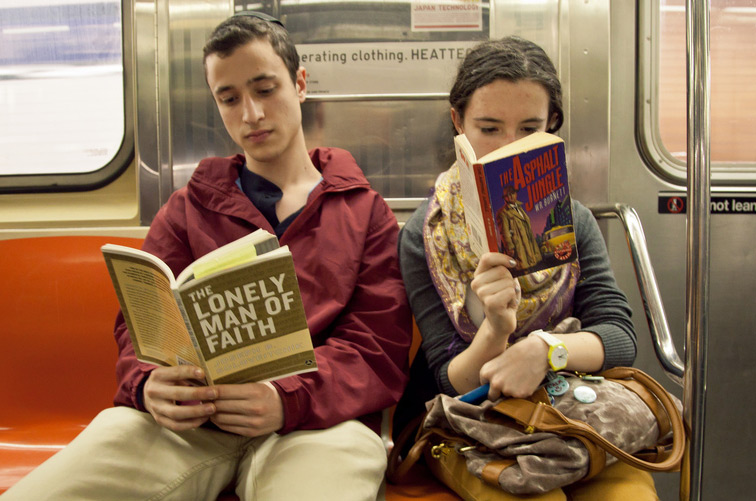I took a closer look at the article Dr. Hochman shared in class today, published just last week—great read. This quote seemed particularly apt:
Relationships and community may represent both the greatest opportunity for loss and the most appealing opportunities for gain in becoming more traditionally observant.Green goes on to discuss that baalei teshuvah often gain a strong sense of community that stands in contrast from the surrounding, secular American culture, but they often have to work diligently if they are to remain close with their families and communities of origin. This reminded me of a cousin who became baalat teshuva later in life (she was probably early 30s when she became orthodox) and had a lot of trouble meeting a husband because she was "old" for the community she was entering. Simultaneously, it was very hard for her parents to adjust to her new life... Do any of you have stories like this in your families or extended families? In what ways do you think involvement in Reform communities may also represent an opportunity for gain or for loss? How can we make sure that participation and collaboration with our communities lands more often on the side of gain than the side of loss?
On a separate note, Green suggests that perhaps this trend into orthodoxy is "a way to find meaning in the relentless rhythms of daily life," and I'm wondering what kind of modes of meaning we are working on practicing for ourselves and working on offering as alternatives to orthodoxy for our congregants.
Finally, to offer a counterpoint, see this longer essay from Mosaic August 2014 on Modern Orthodoxy, and the challenges it faces from the right and the left.


No comments:
Post a Comment